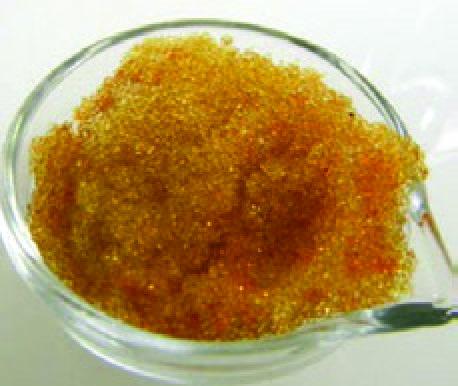By Gabrielle Boucher, NWC student intern
Javed Iqbal is an assistant professor in the University of Nebraska–Lincoln's Department of Agronomy and Horticulture, with expertise in soil and water sciences. Through a USGS 104b grant, Iqbal is leading a project named “Monitoring of Nitrate Leaching at and Below Crops Rooting Depth.” This project will examine different methods of measuring nitrate (NO3) in soil profiles. Nitrate, the most prevalent and concerning water contaminant in Nebraska, can lead to negative health effects. However, there is currently no standard method for estimating nitrate leaching rates into the subsurface. The project's goal is to evaluate two well-known methods and determine which one most accurately predicts concentrations of nitrate while accounting for cost, reliability and time.
The two methods Iqbal and his team will evaluate are lysimeters and ion exchange resins. There are pros and cons to each method. Lysimeters provide highly accurate measurements compared to other methods. However, this method is laborious and requires visiting the site twice to get one measurement. Ion exchange resins also give good estimates and take less time than lysimeters, but have been known to over or underestimate concentrations. Iqbal describes ion exchange resins as “the materials that could absorb different ions, [such as] nitrate and ammonium that have both positive and negative charges.” These ions are absorbed as water moves through them and then the materials can be analyzed in the lab. While there are other methods to estimate concentrations, he has chosen these methods because they are widespread and some methods cannot be compared.
Iqbal’s first objective is to determine which method is best. His team will also take samples from fields using different farming management practices to see how they affect the results. The project will collect samples from an easily accessible site in Northeast Nebraska’s Bazile Groundwater Management Area. Through this project, Iqbal will directly address two of Nebraska’s top ten water challenges: nitrate contamination and emerging contaminants.
The project began in April 2020 and concluded in the fall, in line with the growing season. Intervals between sampling will be between two weeks to a month, depending on rainfall and time of season. Iqbal will lead the project with assistance from Dan Snow, director of UNL’s Water Sciences Laboratory, and a graduate student. He expects ion exchange resins to be easiest to install and collect samples from. The team hopes to identify the method that is the most efficient and accurate and use that in future projects to evaluate the effect of different management practices. This will provide data to support best management practices to reduce the concentration of nitrate leaching in soils.
This project is intended to discover valuable information about measuring nitrate leaching concentrations in soils for future projects. Iqbal and his team are looking forward to this project and to continuing to improve the state of Nebraska’s groundwater.

